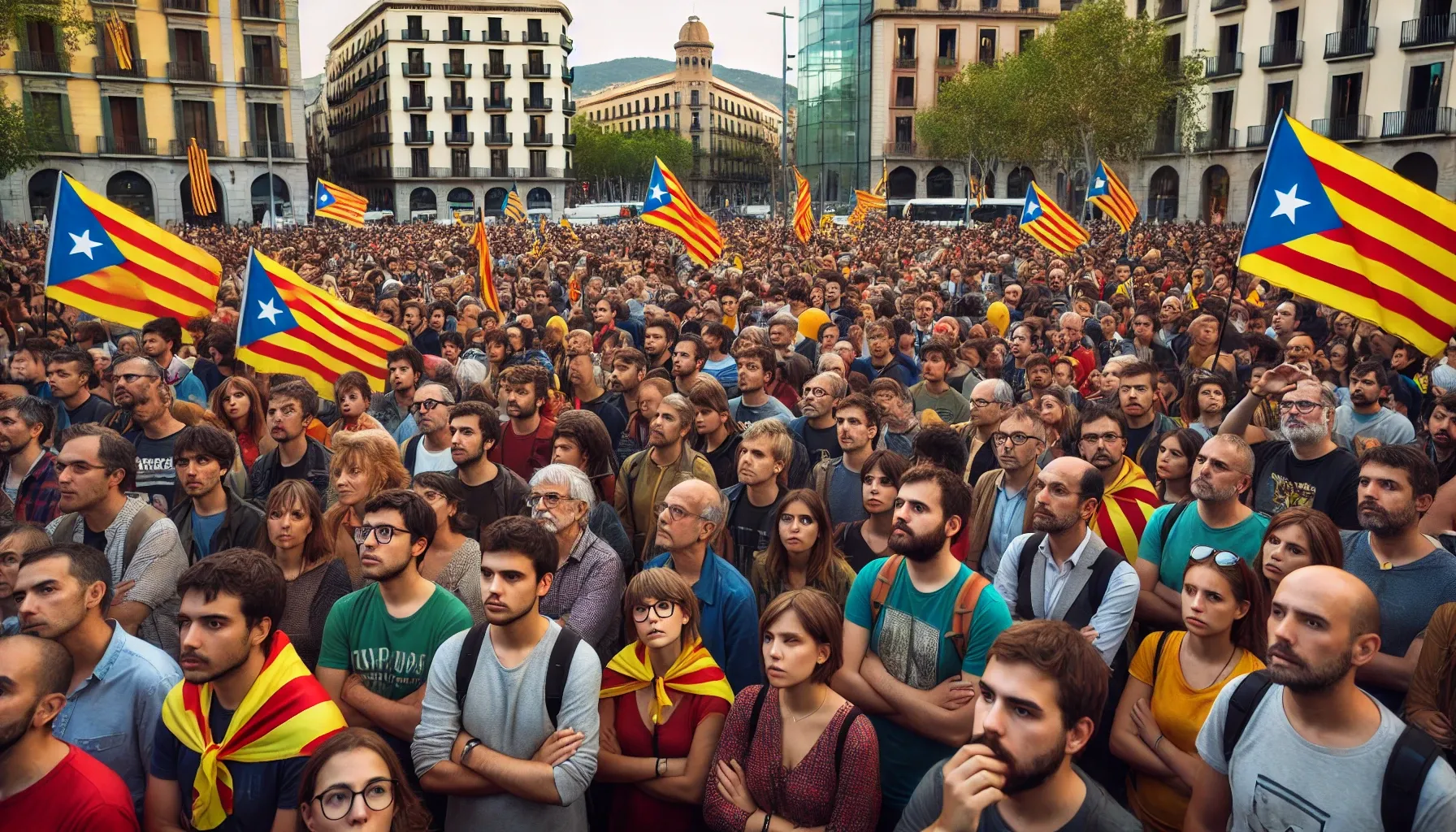Referendum on Catalonia's Independence: Illusions and Reality

- Can Catalonia become independent: a look at the 2014 referendum?
- The future of Catalonia: Independence or economic consequences?
Referendum in Catalonia
A referendum is scheduled for November 9, 2014, during which the residents of Catalonia will decide the fate of their independence. According to sociological studies, about 70% of the population of this autonomous region supports the idea of secession from Spain. This event was initiated by several left-wing political organizations with the active support of the Generalitat, led by Artur Mas. The Spanish government, represented by Prime Minister Mariano Rajoy, considers this act illegal and unconstitutional.
Reaction to events
Some potential investors and buyers operating in the Spanish economy are already expressing their concerns about the current situation. However, there are no serious grounds for worry, as confirmed by several important factors. In particular, the planned referendum does not have any real legal force. It is important to emphasize that the government in Madrid firmly asserts that the referendum in Catalonia violates Spain's constitutional norms, as such votes are officially permitted only by the central authority.
Expert opinion
Esteban Batié, president of Mas-Spain, a company that sells real estate in Spain and Andorra, notes that the planned event in Catalonia cannot be considered a full-fledged referendum. He claims that it will only be an informational survey, which will not lead to any significant consequences and will not serve as a basis for real changes.
Legal aspects of separation
Moreover, the separation of Catalonia cannot be carried out unilaterally, as it is intended.Article 2The Constitution of Spain states the "indissoluble unity of the Spanish nation," which implies that for an autonomous region to become independent, amendments to the country's Fundamental Law are necessary. According toArticle 168To do this, the Constitution requires:
- Voting by two-thirds of the General Courts;
- Dissolution of the lower house of parliament and holding new elections;
- Approval of changes by the same proportion of deputies in the new composition of the courts;
- Conducting a nationwide referendum.
A long road to independence
Even if we assume that the voting in Catalonia goes successfully and the majority supports independence, the process of achieving it will be lengthy and complicated. It will require prolonged negotiations to amend the Spanish Constitution, and in fact, Catalonia will not be able to gain independence instantly.
Economic situation
The central Spanish government is likely to actively oppose the implementation of the plan for Catalonia's independence, as this region is one of the wealthiest and most economically developed parts of the country. Catalonia is home to about 7.5 million people, which accounts for approximately 16% of the total population of Spain. Thus, the issue of this region's independence remains relevant and generates significant interest in Spanish society, and the consequences of such a vote could have a substantial impact on both Catalonia itself and the country as a whole.
Dissatisfaction of local residents
Local residents of Catalonia are expressing dissatisfaction with the distribution of financial resources, believing it is unfair that their tax contributions are used to support poorer regions of Spain. They particularly feel that a large portion of these funds ends up in the hands of the country's capital – Madrid.
Thoughts on independence
Many residents of the region think that if Catalonia becomes independent, its economy and social situation will noticeably improve. There are grounds for this assertion, as Catalonia accounts for more than 19% of Spain's total gross domestic product.
Consequences of separation
Nevertheless, it should be noted that leaving Spain could lead to serious economic consequences, affecting not only the autonomy itself but also the entire eurozone.
9 October 2024
29 January
9 October 2024
29 September

Mariano Rajoy on the future of Spain
Mariano Rajoy is aware of the catastrophic consequences of a possible separation and will undoubtedly do everything possible to prevent such scenarios. He has already stated:“We will not let anyone destroy Spain.”.
Referendum and its consequences
Discussing a possible referendum, it becomes clear that if the majority of voters support the idea of independence and if it receives approval from Spain (which is highly unlikely), Catalonia will still face difficulties in exiting the European Union. The fact is that membership agreements pertain to the entire country, not its constituent parts.
Financial difficulties
"Catalonia will be in an extremely difficult financial situation:"“sooner or later it will lose access to funding, will be unable to pay salaries to the local administration workers, and the banking system will become isolated from the Euro system,”
— claims economist Esteban Batie.
Alfredo Milla's opinion
There is another point of view on this matter, supported by Alfredo Milla, the head of the company Sonneil. He points out that in the event of achieving independence, Catalonia would immediately lose its membership in the European Union and the eurozone.
- This will lead to the creation of a national currency, which will undoubtedly be at a disadvantage compared to the euro.
- Significant increase in public debt.
- Limited access to international financial markets, which will lead to an economic crisis in the region.
Many local commercial banks and large enterprises will be forced to leave Catalonia in order to continue operating with the euro. Certain businesses may be afraid to openly state their position to avoid displeasing supporters of independence; however, if a request for a referendum arises, they will likely follow a similar scenario as companies in Scotland.
The idea of independence
Thus, the ideas of independence and self-governance appear more as a product of propaganda than as a real path to improving the situation in the region. In fact, the Catalans already enjoy many freedoms, and the notion of independence often becomes just an illusion, while real dangers continue to exist.
Conclusion
Ultimately, the future of Catalonia remains in question if it chooses the risky path of secession from Spain.

Conclusion
In concluding the discussion on the current topic of the referendum on Catalonia's independence, I would like to summarize and draw a few important conclusions.
Legal aspects of a referendum
First of all, despite the clear support from the majority of the residents of the autonomous community, this referendum exists in a legal vacuum. Madrid declares it unconstitutional, and lawyers emphasize the lack of real legal force behind the vote. This raises serious questions about the legitimacy and future of Catalonia's quest for independence.
Difficulties of separation
The complexity and diversity of Spain's legal system clearly indicate that the separation of Catalonia is not a simple process, but a complex task that requires time, negotiations, and approvals at various levels. Even if the Catalans decide to pursue independence, they will face numerous economic, social, and political challenges that may not be immediately visible.
Economic risks
Moreover, the real consequences of the separation for the region itself look extremely concerning. As I mentioned earlier, every third company may leave Catalonia, and the costs of fulfilling obligations to residents and civil servants will significantly increase. This will not only lead to economic consequences but will also create an atmosphere of uncertainty that will slow down the development of both the region and the entire country.
The idea of independence
Nevertheless,the idea of independenceFreedom indeed carries a powerful emotional charge and can manipulate public opinion. As studies have shown, the consumption of national identity often occurs without an understanding of the complexities associated with true independence. The Catalans undoubtedly have their rights and freedoms, and their desire to preserve their cultural identity is a normal and natural aspiration.
Summarizing the results
In summary, it can be said that the referendum on Catalonia's independence became not only a matter of political struggle but also a true test for the entire Spanish society.
Regardless of the outcome of the vote, we all need to think about ways of interaction, dialogue, and compromise that can help avoid a split both within the region and across the entire country. Ultimately, supporting the stability and unity of Spain should be a priority for both the government and the Catalan people.
Comment
Popular Posts
9 October 2024
9935
9 October 2024
1485
29 September
356
Popular Offers

Subscribe to the newsletter from Hatamatata.com!
Subscribe to the newsletter from Hatamatata.com!
I agree to the processing of personal data and confidentiality rules of Hatamatata













